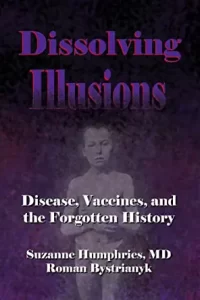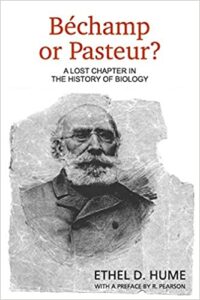
But the more I learn about the history of vaccines (and viruses for that matter), the more I discover that vaccines may not have had the success we have been led to believe. The two prime examples typically given in support of this technology are the eradication of smallpox and polio.
Perhaps you’ve heard stories contradicting the widely accepted belief about these two vaccines, and summarily dismissed them as conjecture or conspiracy theories. I had. Through the years I picked up bits and pieces about polio being caused by DDT and the decline of smallpox being linked to improvements in sanitation and diet.
Even so, I was very accepting of the oft-repeated message that “the science is settled” and that vaccines are “safe and effective.”
It wasn’t until I began to dig a little deeper and read books like “Dissolving Illusions“, by Suzanne Humphries, MD as well as Ethel Hume’s, “Bechamp or Pasteur?: A Lost Chapter in the History of Biology” that I began to discover that the history we’ve been told might not be as accurate as I believed.
“Dissolving Illusions” explains that vaccines, antibiotics, and other medical interventions are not responsible for the increase in lifespan and the decline in mortality from infectious diseases. Hume’ work outlines “the evidence of the false grounds on which the germ theory of disease was elevated to its current status as a dogma, and beyond question.”
These are not the only resources to shine light on the powerful interests who push their agendas to suppress competing perspectives. There are many documented instances where certain agendas prevailed over genuine science. A prime example is the Flexner Report, which you can read about here. But these books serve to remind us to be leery of the powers that control the pharmaceutical and regulatory industries and to remain vigilant in pursuing the truth about the science as well as their intent. We should also be diligent in taking control of our own health and not offload it to those that do not have our best interests in mind.
Two quick summaries
You may not have the time or inclination to delve into the books above. If not, check out the work of Forrest Maready. He has a lot of great information on his site as well as several books of interest. Here are two brief videos from his series, “The Missing Medical School Lectures,” which can be found on YouTube as well as his site.





